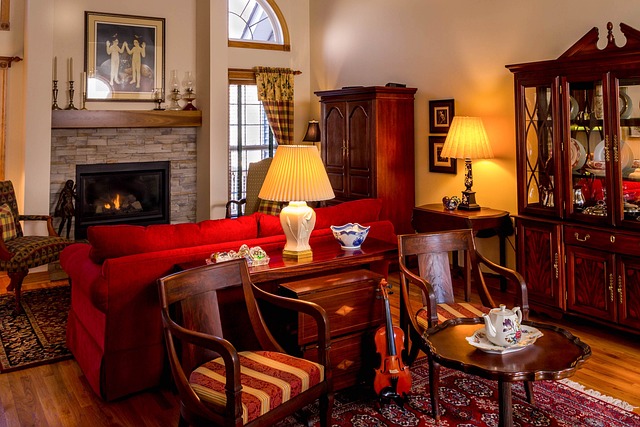Collecting antiques is a great hobby that can bring joy, pride, and financial benefits to both collectors and antique dealers. Whether using antiques as part of your interior design strategies or you simply want to own them, they undoubtedly have a unique charm. This makes them stand out from other collectibles and can be used to start conversations. Your investment can also provide long-term financial returns as many pieces become increasingly valuable over time due to increased rarity or sentimental attachments. Let’s jump right into the eleven keys for collecting antiques!

11 Essential Keys for Collecting Antiques
It takes more than just passion to become a successful collector. You also need to invest in proper research and partner up with experienced antique dealers like Westland London. This way, you can make sure you always purchase original, good-quality antiques for your collection, and be sure you discover the best deals.
1. Research the Market
Failing to research the market properly is one of the most common mistakes when buying antiques. That makes it foremost in this list of keys for collecting antiques. Digging into the history and pricing of antiques can give you great insight into what pieces are valuable, which ones are in demand or trending right now, and any other interesting details. Knowing these things can also be very helpful when negotiating prices with an antique dealer.
2. Have a Budget
Another tip for collecting antiques is to have a budget. Before venturing out to find new pieces for your collection, determine how much money you can spend each month on antiques. This will help keep you from overspending and falling into debt due to your passion for antiquing!
3. Join Online Communities and Events
Joining online communities for antique aficionados allows you to connect with others who share the same enthusiasm for vintage items as you do. Plus, many of these groups host events where fellow collectors can buy, sell, trade, and talk shop in person. Attending events like this gives you direct access to rare finds that aren’t available anywhere else!
4. Expand Your Knowledge
Expand your knowledge by reading books or magazines about antiques and attending lectures hosted by experts in the field. This will allow you to gain invaluable insights on how to make good investment decisions when it comes to collecting antiques. Additionally, many cities offer classes on reconditioning furniture or restoring artworks—great skills if you plan on selling any of your items!
5. Ask Questions and Check Credentials
When buying from an antique dealer be sure to ask questions about the piece before making any purchase decisions. It’s also important that any dealers you interact with have proper credentials verifying their expertise in the field of antiquing – getting scammed is no fun so it’s best to take all necessary precautions!
6. Visit Antique Stores
Another great way to get started with collecting antiques is by visiting local antique stores. Here, you’ll be able to find a variety of items from different periods and cultures—perfect for starting or expanding your collection. You can even talk directly with the store owners and learn more about the pieces they have available. Don’t forget to keep your eyes peeled for hidden gems while you’re exploring these locations!
7. Learn Safety Tips
When taking on the task of collecting antiques it’s important to remember some safety tips. This means handling any pieces you come in contact with carefully as some may be fragile or breakable. Additionally, if you plan on cleaning any of your items make sure that you are using non-toxic methods such as soapy water or special cleaning products designed specifically for antiques.
8. Appraise Your Collection
In case you decide to sell any of your pieces, it’s important to determine their worth through a process known as appraisal. Unless you’re an expert yourself, it’s best to seek out professionals who specialize in appraising antiques and can provide an accurate assessment of each item’s worth. Once an appraisal has been completed, it will be easier for potential buyers or antique dealers to make informed decisions when considering purchasing something from your collection.
9. Know the Era and Artist
It is fundamental to have in-depth knowledge about the era and artist behind each piece in your collection. This will help bring added value to each item as knowing more about its history gives people a better insight into why it’s worth investing in for their own collections—especially if a certain designer is particularly popular right now or was well-known during their time period!
10. Enjoy the Hunt
Most importantly, don’t forget to have fun! Collecting antiques is a great way to enjoy yourself while also making smart investments —so don’t forget to take pleasure in what you’re doing throughout this entire process!
11. Share Your Collection with Friends and Family
The last tip for collecting antiques we recommend is sharing your collection with friends and family members who have similar interests as yourself. Not only does this provide some valuable feedback but it also keeps people close in conversation about something that brings joy into all our lives!
Final Thoughts
We hope you have enjoyed our keys for collecting antiques. It is a unique hobby that requires careful research, dedication, and knowledge. Although it may require significant up-front costs, the value of antiques can often exceed their initial price tag and bring joy to their collector for years to come.
Whether you’ve been participating in the antique market for decades or are just beginning to dip your toes in the pool of history and culture, these essential tips can help guide your journey and potential investment opportunities. With a keen eye and an open heart, you’ll soon find yourself with a personal collection that makes visiting antique stores all the more enjoyable with each experience.



